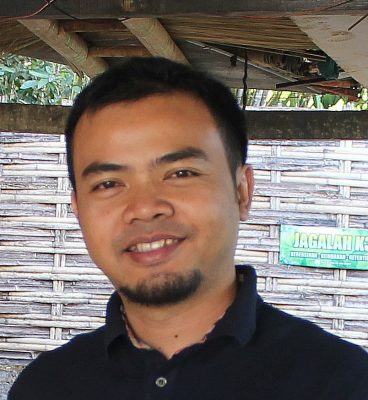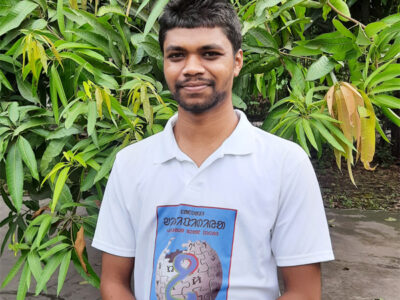Q&A: Meet Ilham Nurwansah, Sundanese language activist

Sundanese language activist Ilham Nurwansah. Photo provided by Ilham Nurwansah.
Each week, the upcoming host will answer several questions about their background and give a brief overview of their language. This Q&A is with Ilham Nurwansah (@inurwansah) who will provide a sneak preview of what he will be discussing during his week as host.
Rising Voices (RV): Please tell us about yourself.
Ilham Nurwansah (IN): My name is Ilham Nurwansah. I am a Sundanese native speaker of Indonesia. Since I studied Sundanese for my BA and MA, my interest in this language has grown, especially to be able to share its linguistic and cultural richness with everyone. I do independent research on Sundanese language and ancient manuscripts and I contribute to the community around Wikipedia in Sundanese. I also write articles on Sundanese language for local papers and magazines.
RV: What is the current status of your language on the internet and offline?
IN: Sundanese (bahasa Sunda) is spoken by more than 39 million people, mostly in the western part of Java island. It makes Sundanese the second most spoken language in Indonesia. Written historical evidence shows that it has been recorded in the 14th century and continues to be used and developed until now. Today it has also been included as a subject in the local school curriculum, supported by print publications, and online resources (e.g. Wikipedia and the news portal Kora Sunda).
RV: What topics do you plan to focus on during the week that you’ll manage the @AsiaLangsOnline Twitter account?
IN: I will talk not only about linguistic aspects of Sundanese but also about the culture and knowledge of Sundanese people in general. It will range from historical periods to the modern day.
RV: What are the main motivations for your digital activism for your language? What are your hopes and dreams for your language?
IN: I want to show the dynamic nature of Sundanese culture that continues to develop across time, with all its perspectives. This step is important as a promotion of the existence and the role of my mother tongue in the global society.
Support our work
Since Rising Voices launched in 2007, we’ve supported nearly 100 underrepresented communities through training, mentoring, microgrants and connections with peer networks. Our support has helped these groups develop bottom-up approaches to using technology and the internet to meet their needs and enhance their lives.
Please consider making a donation to help us continue this work.



